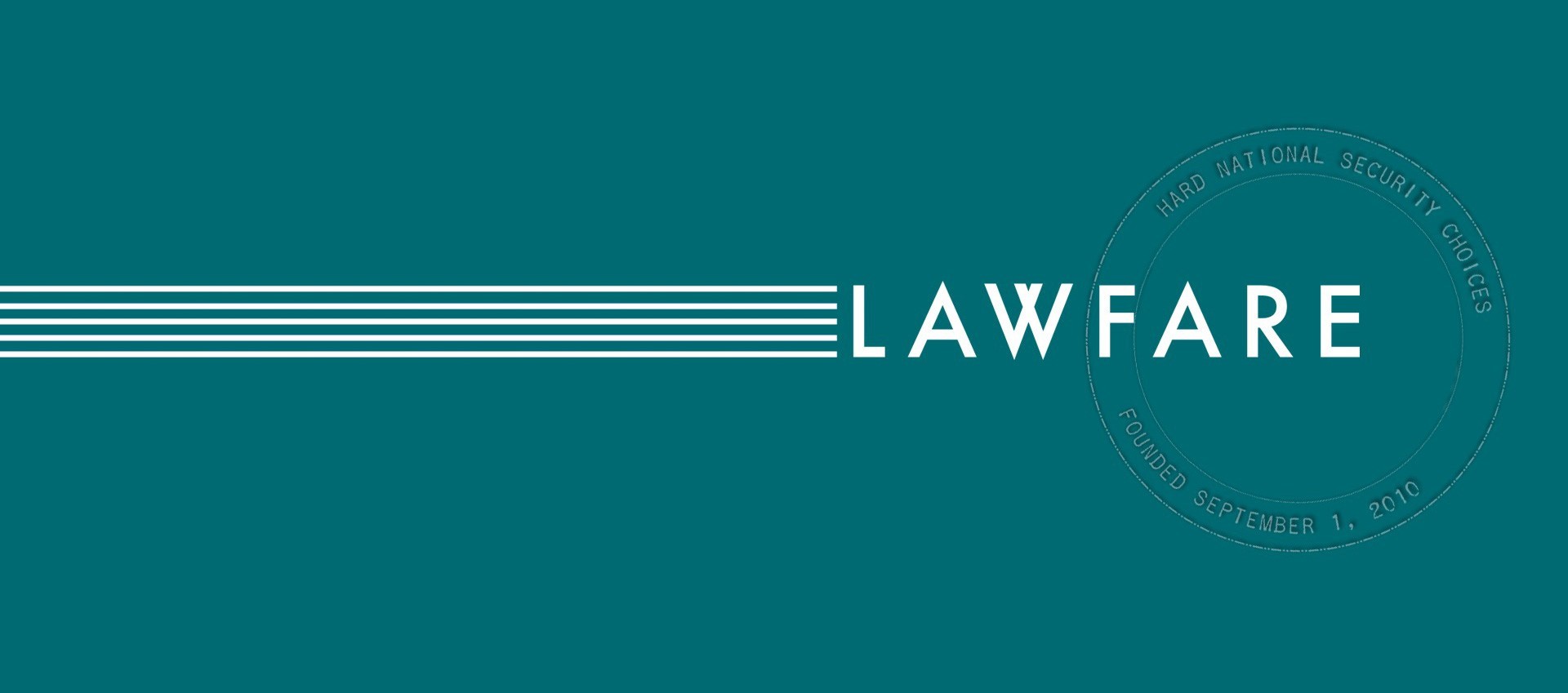The Week That Was: All of Lawfare in One Post
Your weekly summary of everything on the site.
Published by The Lawfare Institute
in Cooperation With

Charlotte Butash and Benjamin Wittes argued that Attorney General William Barr’s decision to overturn the Justice Department's sentencing recommendation in the case of Roger Stone is a gift to criminal defendants everywhere. The defense bar should take it at face value, they argue—and thereby make him answer for it. Mikhaila Fogel offered a detailed account of the Stone sentencing hearing.
Quinta Jurecic and Andrew Kent noted that the 2020 Democratic candidates for president, in contrast to those running for office in the first post-Watergate presidential election, have spent little time discussing Justice Department independence and reforms. Vishnu Kannan compiled the national security highlights from the ninth Democratic debate.
Omar Rahman argued that the paralysis of Palestinian politics is preventing an effective response to the new Trump peace plan. Jacob Shulz analyzed the SDF’s plan to try European foreign fighters. And Madiha Afzal considered why Pakistan’s military is repressing a huge, nonviolent Pashtun protest movement.
Israeli Adm. Ami Ayalon and Ayal Hayut-man argued that in the fight against terrorism, victory should be defined as a continuous process of providing security and maintaining society’s core values in the face of threats.
Emma Broches and Julia Solomon-Strauss provided an update on prosecutions of international terrorist supporters.
Stewart Baker considered what should be done about Section 230. Evelyn Douek discussed Facebook’s new white paper on the future of online content regulation. Andrew Keane Woods argued that our bias against robots is doing us more harm than good. And Jen Patja Howell shared an episode of the Lawfare Podcast, featuring an interview with professor Brendan Nyhan on the empirical effects of disinformation:
She also shared a bonus episode of the Lawfare Podcast featuring an interview with Jessica Stern on her new book about Radovan Karadzic, the architect of the Bosnian genocide:
Amanda Sloat analyzed the Munich Security Conference, arguing that European states want to exert more unity and strength on the world stage but lack the vision and consensus to do so.
And Patja Howell shared an episode of Rational Security in which the gang discussed Bill Bar, Huawei and the Munich Security Conference:
As the Trump administration has cut spending on foreign aid and development, Karen Young discussed China and the Arab Gulf states’ increasing engagement in bilateral development projects, arguing that these new actors favor development policies that do not accord with U.S. interests.
Colin Clarke analyzed the far-right terror attack in Hanau that has rocked Germany.
David Priess and Martijn Rasser argued that, despite Trump’s tweets offering to purchase the island, we should take Greenland seriously as a vital national security issue.
Ryan Scoville uncovered new evidence of 61 secret international agreements.
Patja Howell shared an episode of the Lawfare Podcast with professor Andrew Bacevich, co-founder of the Quincy Institute for Responsible Statecraft, on his recent book “The Age of Illusions: How America Squandered Its Cold War Victory”:
William Ford analyzed the Senate Foreign Relations Committee’s hearing on securing a negotiated solution to the Libyan civil war.
And Patja Howell shared an episode of the Lawfare Podcast with Patrick Radden Keefe, a staff writer for the New Yorker, on his book “Say Nothing: A True Story of Murder and Memory in Northern Ireland”:
And that was the week that was.





